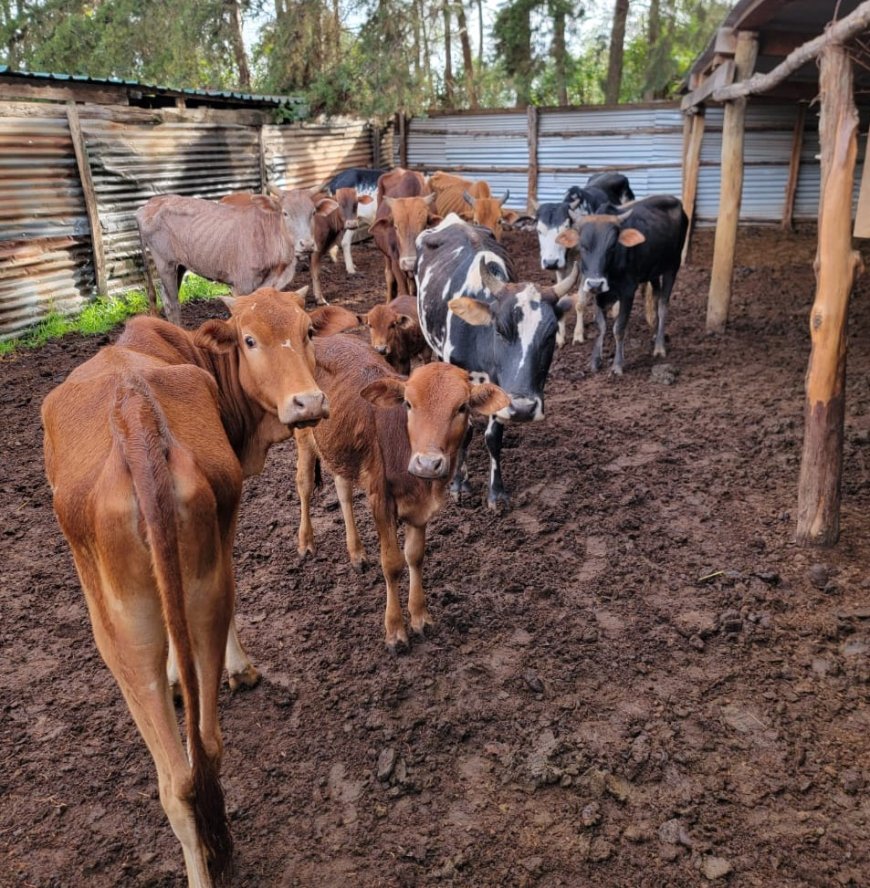Government is set to establish a National Federation of Beef

Kiambu,
Wednesday, November 15, 2023
KNA by Wangari Ndirangu
The government is set to establish a National Federation of Beef that will have Cooperative and Micro and Small Enterprise (MSME) Cabinet Secretary Simon Chelugui has said.
The CS said the government wants a coordinated way of running the cooperatives on feeding and fattening or finishing animals.
Speaking during the annual cooperative leader’s consultative conference to assess sector performance, the CS added that the federation will also seek to source for the markets, coordinate the slaughtering and aggregation of animals in addition to facilitating the logistics just like what KPCU does for coffee and KTDA does for tea.
“For instance, if we get an order of one million kilos next week, the federation will be able to call some respective counties, check which animals are ready, and then total them up to see that Kenya can export the one million kilos of beef. This is irrespective of which county they are coming from,” said Chelugui.
The CS noted that the government will standardize the feeding of animals in the feedlots and have Kenya Animal Genetic Resources Centre (KAGRC), Kenya Veterinary Vaccines Production Institute (KEVEVAPI) and the Ministry of Livestock involved in production.
“The Ministry of Cooperatives' role will be to bring members to aggregate, and to provide the infrastructure for feedlots. The counties are expected to provide extension services,” he said.
Chelugui added that discussions are going on now, and that the government has received support from the World Bank with funds coming through Kenya Development Corporation (KDC) and the Ministry of Livestock.
“We are seeking to participate and aggregate feedlots in that manner. This way, we will open up part of Kenya that has been for a long time marginalized,” said the CS.
This endeavor is expected to significantly improve the quality of beef and leather products and thereby transform livelihoods in ASALs counties.
Kenya Agricultural Livestock Research Organization (KALRO) Director General Dr. Eliud Kireger told KNA that they have initiated cross breeding strategies in beef production to improve body weight gain, early maturity, good carcass quality and resilience to climate change.
“Crossbreeding provides an opportunity for combination of desirable traits through breed complementarity for increased beef output,” he said adding that this has been achieved through a combination of crossbreeding programmes involving the local adapted breeds of Boran and Sahiwal and introduced exotic breeds such as Red Poll and Brahman.
The KALRO Beef Research Institute in Lanet, Dr. Kireger said has been undertaking a two-way crossing strategy involving the two breeds to accelerate genetic gain in beef production by optimizing on the hybrid vigour that is normally associated with crossbred populations.
For example, he explained that research results for finishing beef cattle in a feedlot in at the KALRO-Lanet have shown that crossbreds between Improved Boran and Sahiwal and the Red Poll can achieve above 1 Kg average daily gain compared to less than 0.5kg for the local purebred Zebu cattle.
The Boran crosses with exotic have shown early maturing with an average sale weight of 750kg at 24 months of age.
The beef industry in the country is the largest contributor to agricultural GDP in Kenya, at an estimate of 36 percent, especially in the arid and semi-arid lands, where beef production is the main economic activity.
Kenya looks to achieve self-sufficiency in beef as the demand in the domestic market is 40,000 tonnes larger than the current production of 260,000 tonnes and according to Dr. Kireger the cross-breeding exercise targets livestock farmers in Arid and Semi-Arid Lands and has the potential to bridge this gap.
Currently, the country has 18.8 million cattle (14.3 million beef cattle and 4.5 million dairy cows). Beef is the most consumed meat in Kenya, being preferred by almost 80 percent of the inhabitants.
According to the 2023 Economic survey, the price for 100 kilograms of third grade beef rose from Sh44,839.6 in 2021 to Sh46,522.1 in 2022.
Courtesy; KNA
What's Your Reaction?



































































































































































































































































































